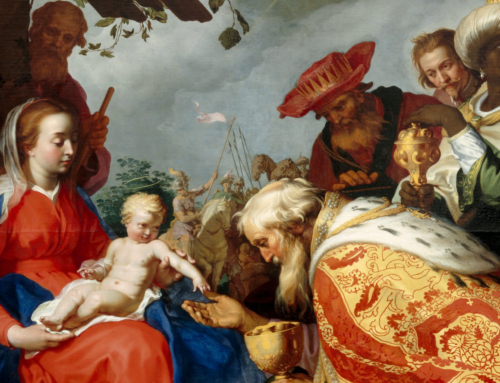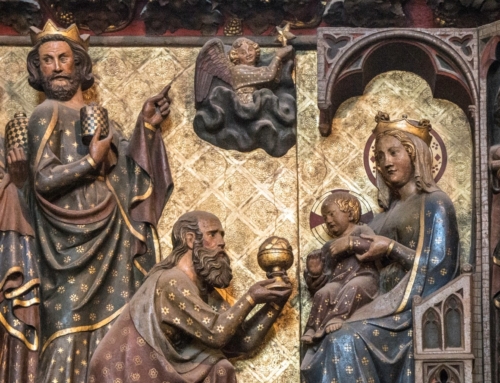Today, on the feast of the Holy Innocents, we pray in a special way for the children who were murdered in Newtown, Connecticut, their families and friends, and the men and women who died trying to protect them. In a sermon preached in Newtown’s St. Rose of Lima Church, just two days after the shooting, Fr. Peter John Cameron said, “Never before has the Massacre of the Holy Innocents taken place before the Birth of Christ. But that is what has happened in Newtown.”
And [Joseph] rose and took the child and his mother by night, and departed to Egypt, and remained there until the death of Herod. This was to fulfill what the Lord had spoken by the prophet, “Out of Egypt have I called my son.” Then Herod, when he saw that he had been tricked by the wise men, was in a furious rage, and he sent and killed all the male children in Bethlehem and in all that region who were two years old or under, according to the time which he had ascertained from the wise men. Then was fulfilled what was spoken by the prophet Jeremiah:
“A voice was heard in Ramah,
wailing and loud lamentation,
Rachel weeping for her children;
she refused to be consoled,
because they were no more.” (Matthew 2:14–18)
In sixteenth-century Coventry, England, this Gospel story was retold as part of a mystery play called The Pageant of the Shearmen and Tailors. Only one song from the play survives. Now known as The Coventry Carol, it is the lament of the mothers of Bethlehem:
http://www.youtube.com/watch?v=GBzQJqSRgEo
Lully, lulla, Thou little tiny Child,
Bye, bye, lully, lullay.
Thou little tiny Child,
Bye, bye, lully, lullay.O sisters too, how may we do,
For to preserve this day
This poor youngling for whom we do sing
Bye, bye, lully, lullay.Herod, the king, in his raging,
Charged he hath this day
His men of might, in his own sight,
All young children to slay.That woe is me, poor child for thee!
And ever morn and day,
For thy parting neither say nor sing,
Bye, bye, lully, lullay.
On the theological significance of this feast, here is the fifth-century Church father, St. Quodvultdeus:
A tiny child is born, who is a great king. Wise men are led to him from afar. They come to adore one who lies in a manger and yet reigns in heaven and on earth. When they tell of one who is born a king, Herod is disturbed. To save his kingdom he resolves to kill him, though if he would have faith in the child, he himself would reign in peace in this life and for ever in the life to come.
Why are you afraid, Herod, when you hear of the birth of a king? He does not come to drive you out, but to conquer the devil. But because you do not understand this you are disturbed and in a rage, and to destroy one child whom you seek, you show your cruelty in the death of so many children.
You are not restrained by the love of weeping mothers or fathers mourning the deaths of their sons, nor by the cries and sobs of the children. You destroy those who are tiny in body because fear is destroying your heart. You imagine that if you accomplish your desire you can prolong your own life, though you are seeking to kill Life himself.
Yet your throne is threatened by the source of grace—so small, yet so great—who is lying in the manger. He is using you, all unaware of it, to work out his own purposes freeing souls from captivity to the devil. He has taken up the sons of the enemy into the ranks of God’s adopted children.
The children die for Christ, though they do not know it. The parents mourn for the death of martyrs. The child makes of those as yet unable to speak fit witnesses to himself. See the kind of kingdom that is his, coming as he did in order to be this kind of king. See how the deliverer is already working deliverance, the savior already working salvation.
But you, Herod, do not know this and are disturbed and furious. While you vent your fury against the child, you are already paying him homage, and do not know it.
How great a gift of grace is here! To what merits of their own do the children owe this kind of victory? They cannot speak, yet they bear witness to Christ. They cannot use their limbs to engage in battle, yet already they bear off the palm of victory.
✠
Image: Guido da Siena, Massacre of the Innocents






